FREE Simple Safety Meeting Toolbox Talks for Downloading and Use in Your Industrial Facility
100% FREE Simple Safety Meeting Toolbox Talks for you to download.
See our large collection of Simple Safety Meetings Below. 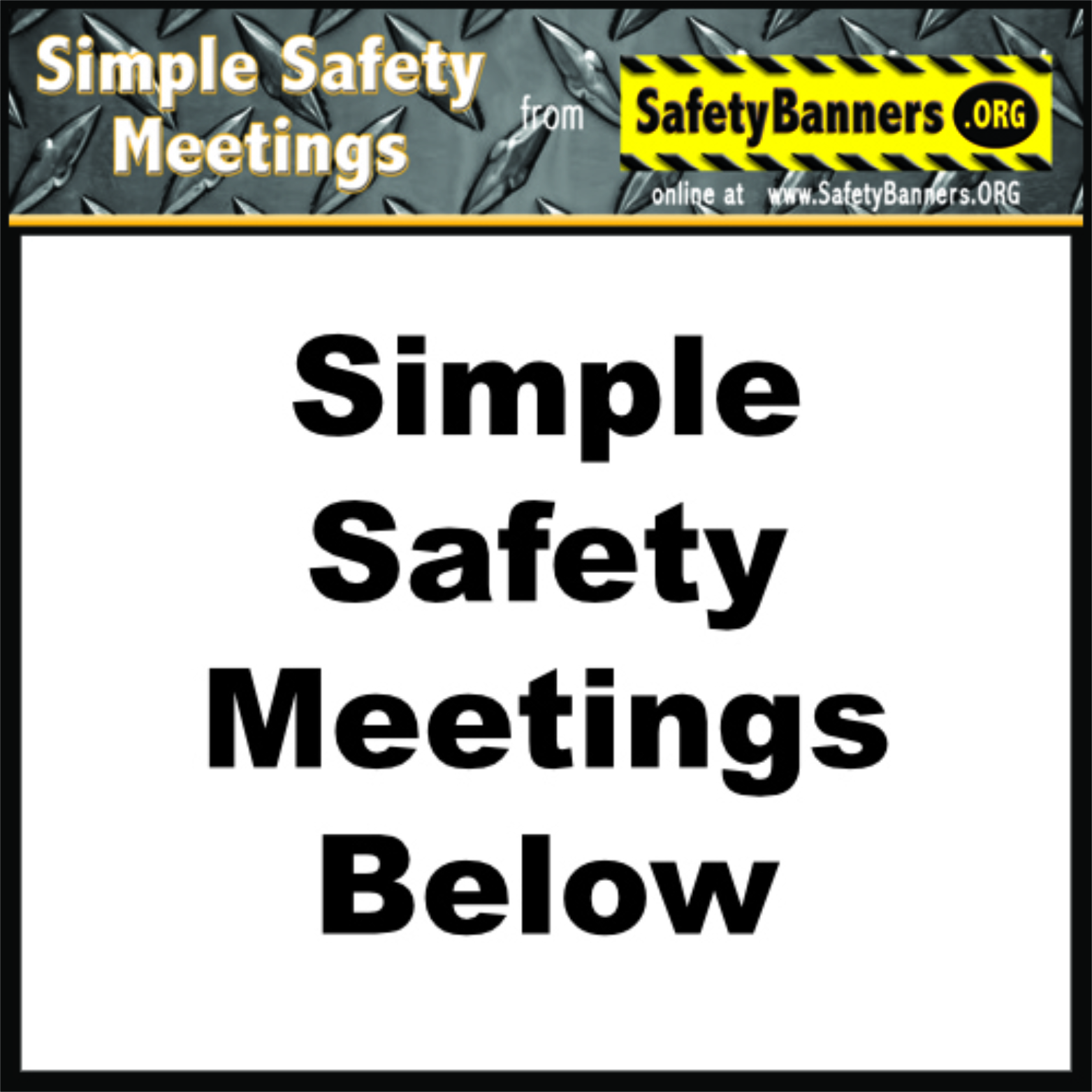
It is a proven fact that frequent regular safety meetings can reduce accidents.
BELOW you will find our selection of short Simple Safety Meeting that can be utilized at the start of a shift. Download and use to keep your facility safe.
Research shows us that companies who hold weekly safety meetings can reduce their Total Recordable Incident Rate (TRIR) by 85% compared to companies that only hold long monthly safety meetings.
However, to be effective, safety meetings can’t be stale or boring. They need to be relevant and engage workers.
In our ongong effort to help American industry improve worker safety, SafetyBanners.Org is offering a series of Safety Meeting Toolbox Talks that can be used by managers and safety professionals to improve safety on a wide variety of topics with the in short meetings with worker groups.
Our Safety Meeting Tool Box Talks are detailed enough to address specific issues but short enough to be used prior to a shift start time.
Below you wil find several high resolution PDF Safety MeetingTool Box Talks that are FREE to Download. Enjoy and Work Safely.
The Benefits of Simple Safety Meetings Toolbox Talks and how to use them effectively
Simple Safety Meetings are a form of Toolbox Talks. They are short, focused discussion meetings that address specific safety and health topics relevant to the industrial workplace. These informal yet structured conversations are best held at the beginning of a shift or before starting a specific task, typically lasting between 5 and 15 minutes. They are valuable in any work environment where safety, health, and worker well-being are important. Our Simple Safety Meetings toolbox talks are effective in part because they engage the workforce, increase awareness of safety procedures, and promote a culture of safety.
To achieve these safety goals, it is essential you use a well-structured methodology. This article will offer the best methodology for conducting effective Simple Safety Meetings toolbox talks and the benefits these meetings provide to companies and their workers.
The Importance of Simple Safety Meetings Toolbox Talks
Simple Safety Meetings Toolbox talks play an important role in maintaining and improving American workplace safety.
They provide a platform for open communication between workers and supervisors, allow companies to remind workers of safety protocols, and address potential hazards before they become serious issues.
The main objectives of Simple Safety Meetings are:
- Improving Awareness: Workers are reminded of the safety risks associated with their tasks.
- Enhancing Communication: Simple Safety Meetings Toolbox talks facilitate better communication between supervisors and workers about safety concerns and solutions.
- Continuous Training: They act as short, frequent training meetings to reinforce knowledge of safety practices.
- Promoting Compliance: Regular Simple Safety Meetings can help ensure compliance with safety regulations and company policies.
- Fostering a Safety Culture: They instill a culture of safety by emphasizing that workplace safety is a collective responsibility.
Best Methodology for Toolbox Talks
To maximize the effectiveness of Simple Safety Meetings, it is essential to follow a systematic and well-planned methodology. Furthermore, conducting Simple Safety Meetings toolbox talks on a bi-weekly or weekly basis is best for long term safety enforcement and worker retention. Also, repeating the same Simple Safety Meetings toolbox talk is worthwhile and beneficial as memory refreshers and enforcement.
These are the key steps that make up the best methodology for conducting Simple Safety Meetings:
1. Preparation
- Identify Relevant Topics
The first step in any Simple Safety Meeting toolbox talk is choosing the right topic. The topic should be relevant to the specific tasks that workers will be performing that day or week. Consider current job site hazards, recent safety incidents, or common facility safety challenges.
- Tailor the Discussion to your Audience
Consider the experience level and job functions of the workers. New hires may need more detailed information, while seasoned workers may benefit from discussions of advanced safety practices. Using examples that resonate with the specific audience will make the meeting more engaging and meaningful.
2. Engagement
a. Encourage Participation
A successful Simple Safety Meeting is not a monologue. Engage the workers by asking open-ended questions, encouraging them to share their experiences, and fostering a dialogue between both you and each other. For example, you might ask, “What risks do you think we’ll face today, and how can we mitigate them?” Involving workers in the meeting makes the meeting more interactive and helps ensure that the key messages are understood.
b. Use Visual Aids and Demonstrations
Many people learn better through visual examples or hands-on demonstrations. Consider using posters, videos, or equipment demonstrations to explain complex concepts. For instance, when discussing PPE usage, it might be helpful to show the proper way to wear safety gear. This makes the information easier to remember and applies directly to the task at hand.
3. Delivery
a. Keep It Short and Focused
Simple Safety Meetings should be brief and to the point. A 10-minute Simple Safety Meeting that covers one topic in depth is more effective than a longer talk that tries to cover too much. The goal is to address a single safety topic thoroughly, without overwhelming the participants.
b. Speak Clearly and Be Approachable
The person delivering the Simple Safety Meeting must speak clearly and confidently. They should also be approachable, allowing workers to ask questions or raise concerns without fear of reprisal. Ensure that the meeting is delivered in a language that all workers understand. If necessary, engage a worker who can act as a translator, or materials in the languages spoken at your facility.
c. Stay on Topic
While engagement is important, the facilitator must maintain focus. Wandering off-topic can dilute the message and make it less effective. Stay on point by sticking to the chosen subject, addressing relevant questions, and summarizing key takeaways at the end.
4. Follow-up
a. Address Feedback
After the Simple Safety Meeting, it’s crucial to follow up on any questions or concerns that were raised. If you promised to look into a specific issue, make absolutely sure do and provide an answer or solution in the next meeting or through another communication channel. This shows workers that their input is valued and taken seriously.
b. Monitor and Enforce Safety Practices
Simple Safety Meetings are only as effective as their application in the field. After the Simple Safety Meeting, supervisors should monitor whether workers are following the discussed safety practices. Regular audits, safety checks, and observations can help ensure that the Simple Safety Meetings has had the intended impact.
c. Record and Track
Document the Simple Safety Meeting for future reference. Keep records of the topics covered, attendance, and any follow-up actions taken. These records can be used for compliance audits, future training needs, or incident investigations.
The Benefits of Simple Safety Meetings
1. Improved Safety Performance
Frequent, weekly is best, Simple Safety Meetings significantly reduce the risk of accidents, injuries, and fatalities. Workers who receive consistent reminders about safety are more likely to follow procedures and be vigilant about potential hazards. This leads to fewer workplace incidents, saving companies time and money by reducing the need for incident investigations, medical costs, and lost productivity.
2. Employee Engagement and Morale
Simple Safety Meetings provide workers with a voice in safety discussions. By encouraging workers to participate and share their experiences, companies demonstrate that they value their employees' safety and well-being. This increased engagement can lead to higher morale and job satisfaction, as workers feel that they are heard and appreciated.
3. Regulatory Compliance
Many industries are subject to strict safety regulations, such as those from OSHA or other governing bodies. Regular Simple Safety Meetings toolbox talks help ensure that companies remain compliant with these regulations by reinforcing important safety rules. Additionally, recorded toolbox talks can serve as evidence of ongoing safety training in the event of an inspection or investigation.
4. Continuous Learning and Development
Simple Safety Meetings Toolbox talks act as ongoing, on-the-job training. Workers are regularly exposed to new safety information or reminded of best practices, helping to reinforce knowledge gained during formal training meetings. This continuous learning approach ensures that safety skills stay fresh in workers' minds and are applied daily.
5. Reduced Downtime and Increased Productivity
A well-informed and safety-conscious workforce is less likely to experience accidents, which means less downtime due to injuries, equipment damage, or investigations. Safe operations lead to smoother more efficient workflows, enabling workers to focus on their tasks without interruptions caused by preventable incidents.
At the end of the day Simple Safety Meetings Toolbox talks are a highly effective tool for enhancing workplace safety, improving communication, and building a strong safety culture. By following a structured methodology—focused on preparation, engagement, delivery, and follow-up, companies can ensure that these Simple Safety Meetings are impactful and relevant. The benefits of frequent regular Simple Safety Meetings are clear: improved safety performance, increased employee engagement, regulatory compliance, more efficient workflow, and reduced downtime. When done correctly Simple Safety Meetings not only prevent accidents but also create an environment where safety is a shared responsibility, leading to a more productive and harmonious workplace.
Produced by SafetyBanners.Org
Memphis Tennessee
PLEASE BE PATIENT. We are in the process of developing our Simple Safety Meetings™ and will be adding more on a regular basis.

--------------------------------------------------------------------------------------------------------------------------------
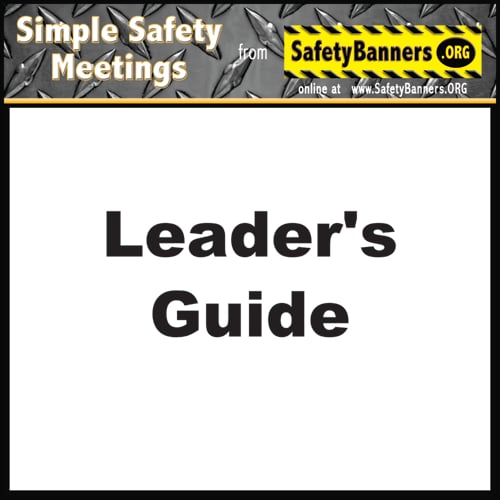
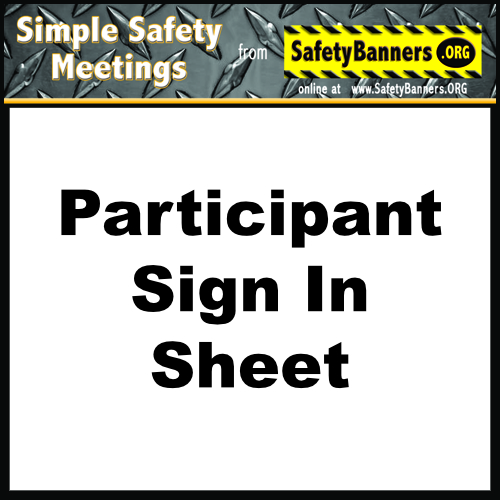 -
- 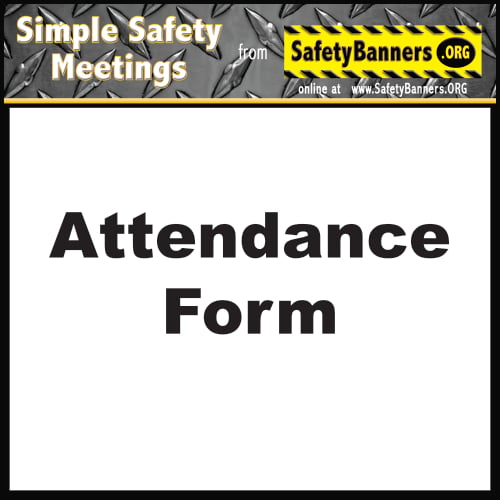 -
-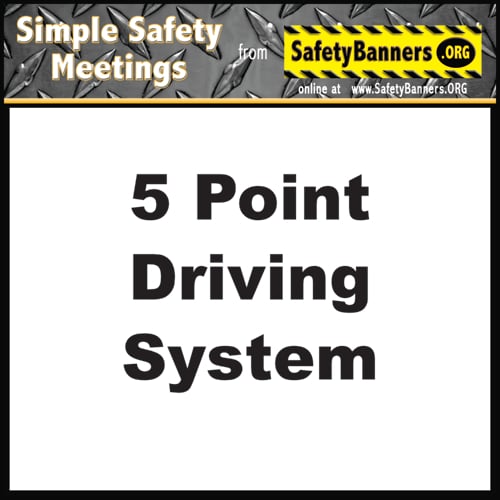 .
.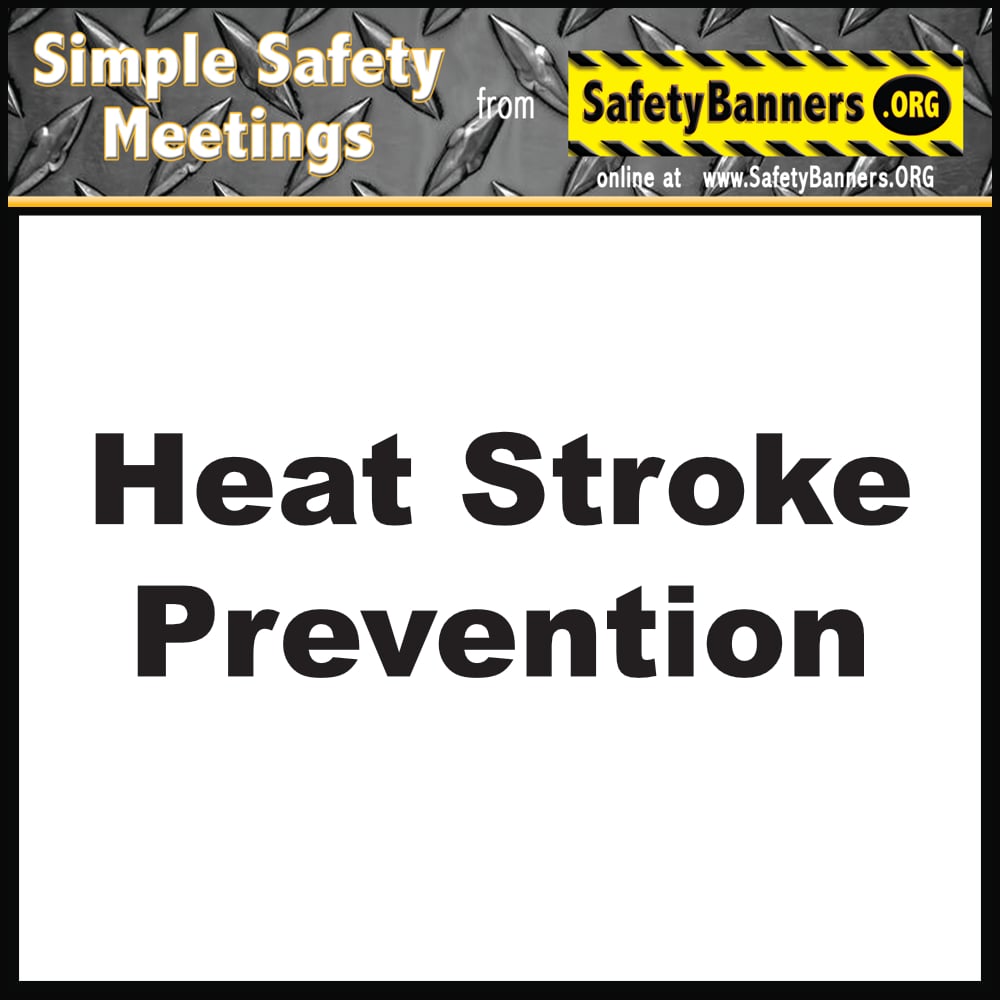 -
-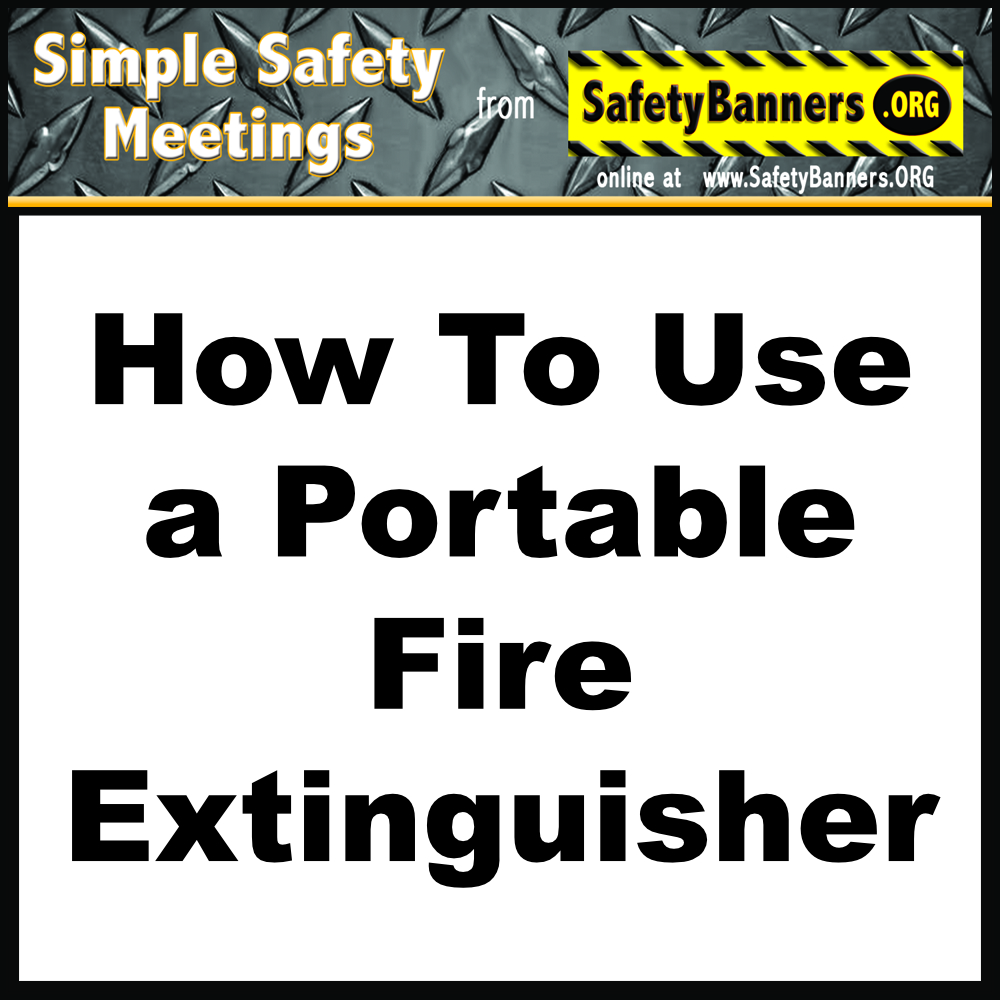 -
-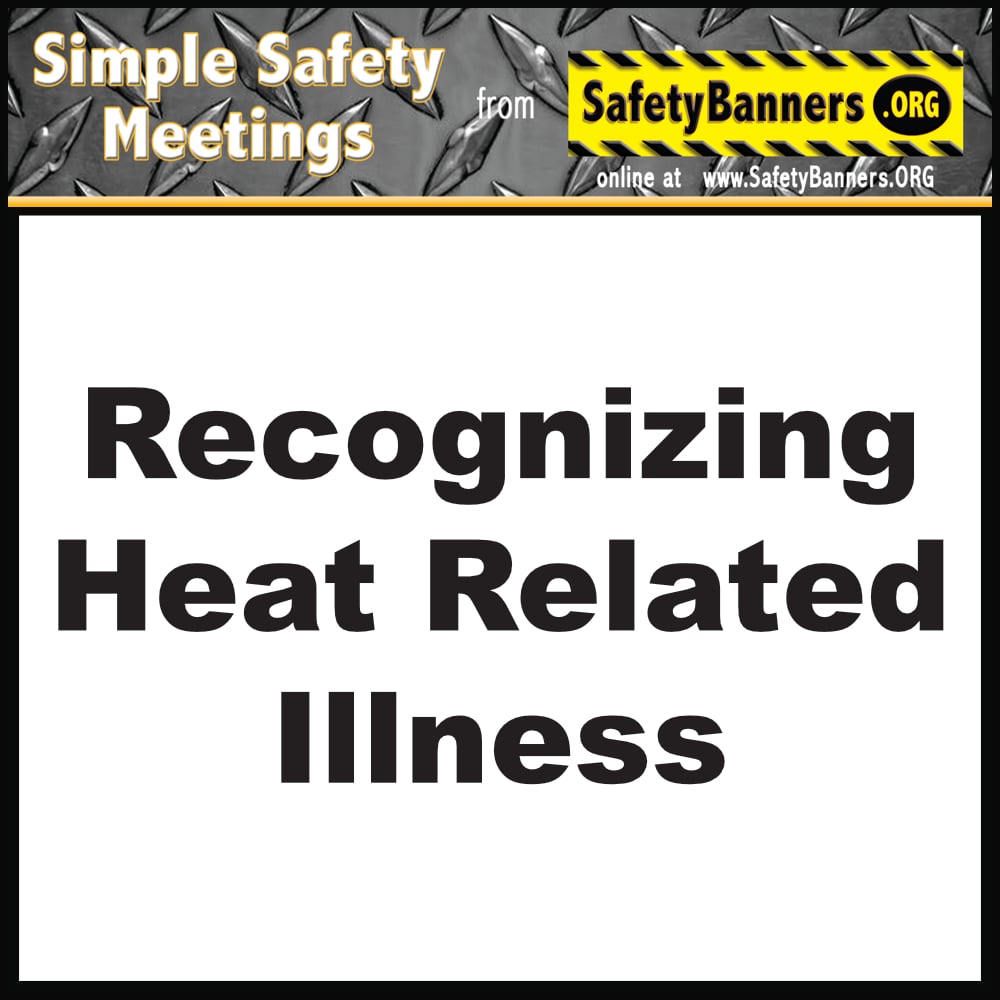 -
-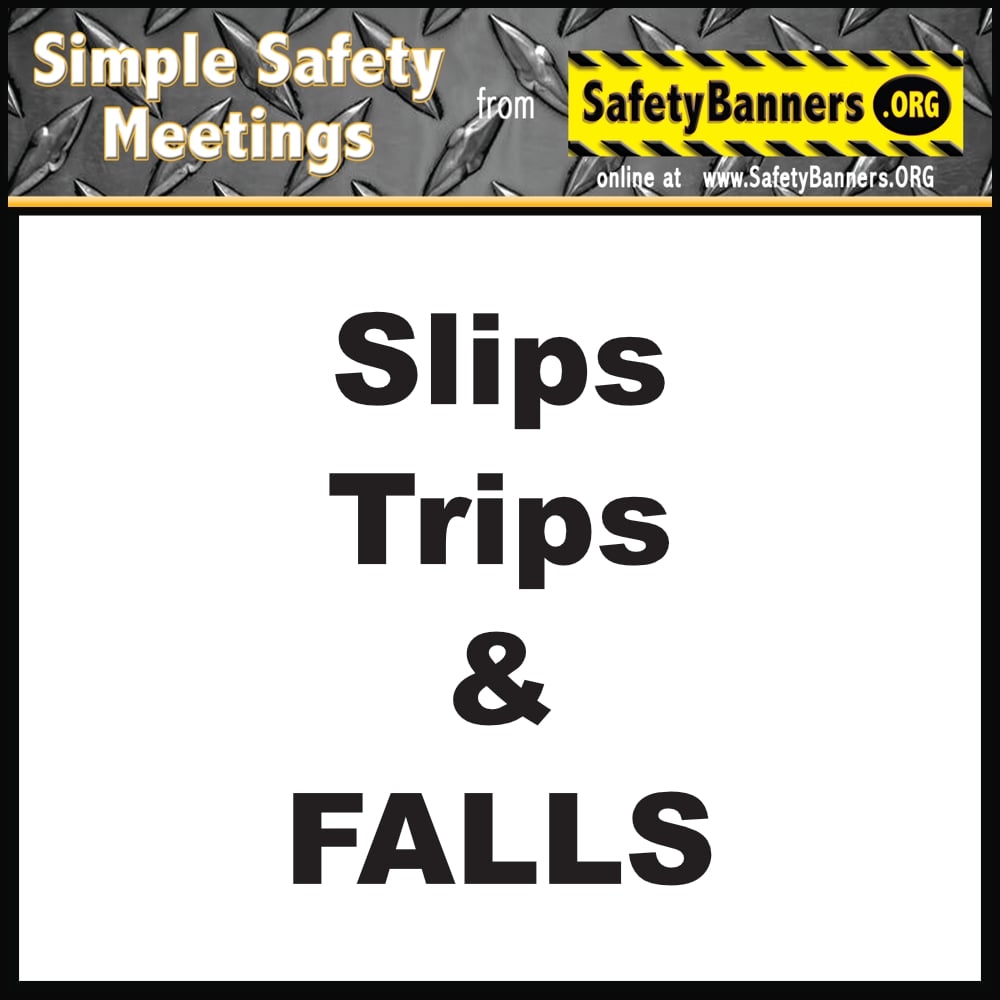 -
-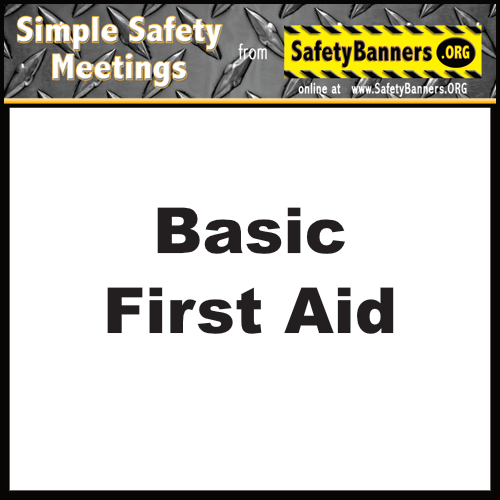 -
- -
- 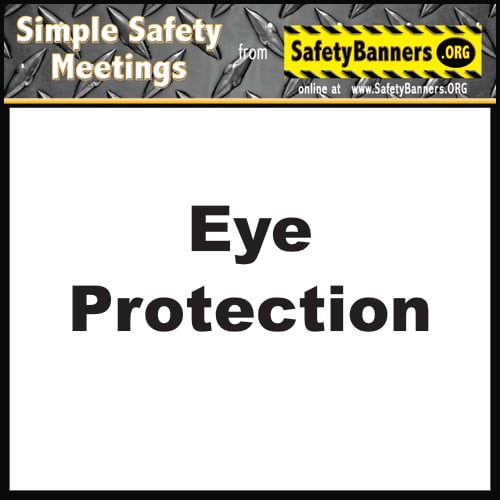 -
- 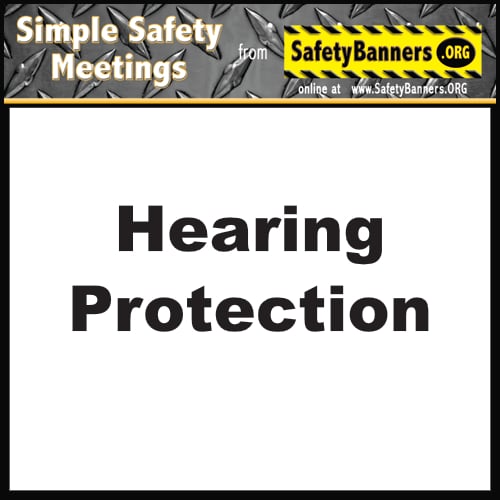 -
- 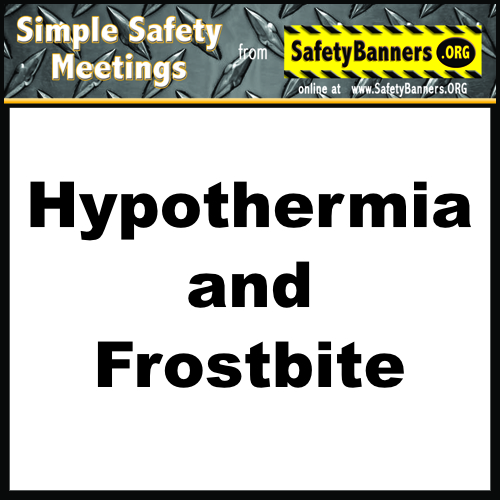 -
- 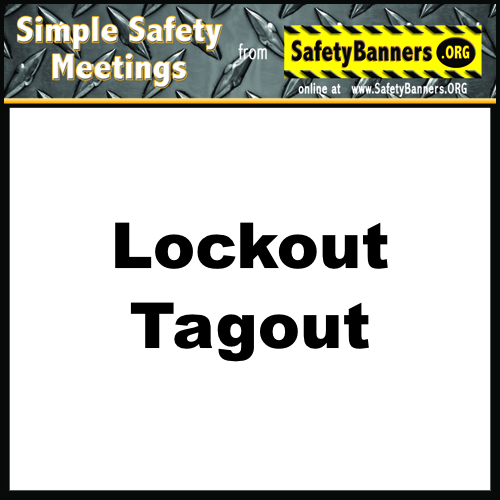 -
- 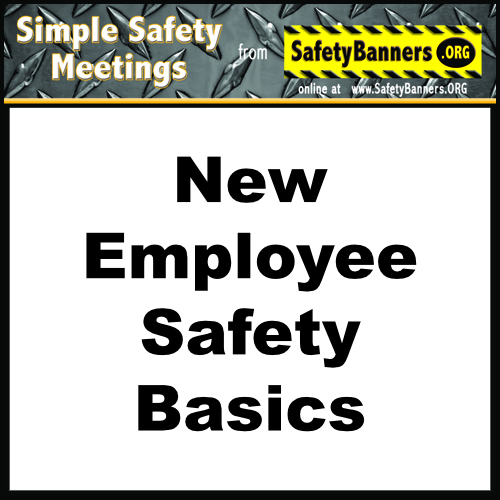 -
- 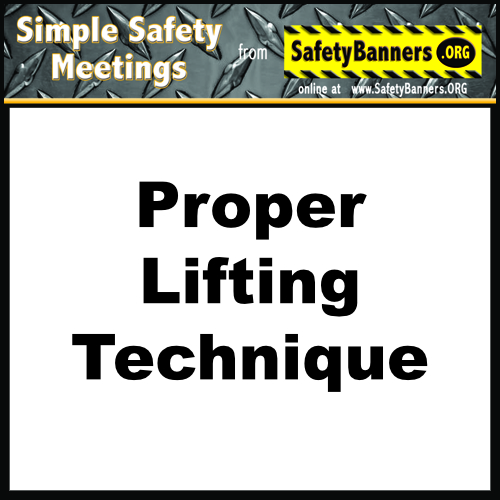 -
- 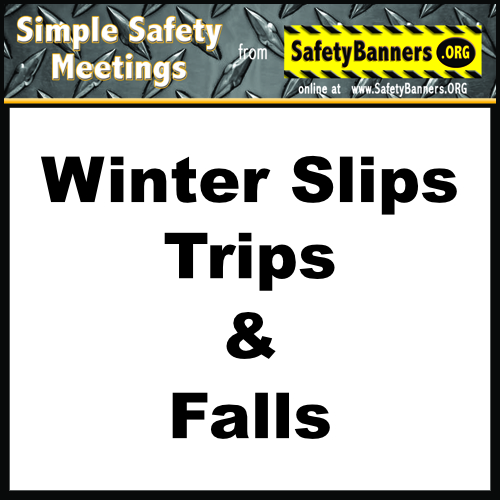 -
- 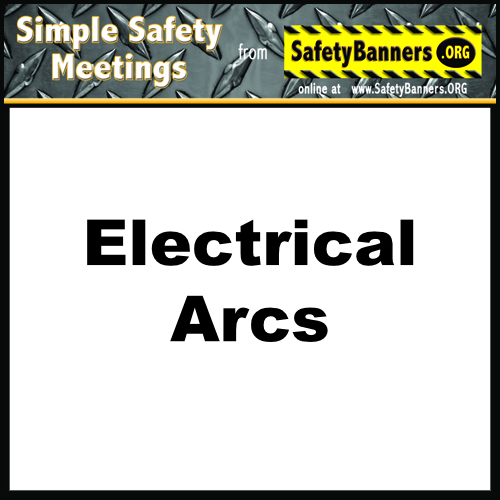 -
- 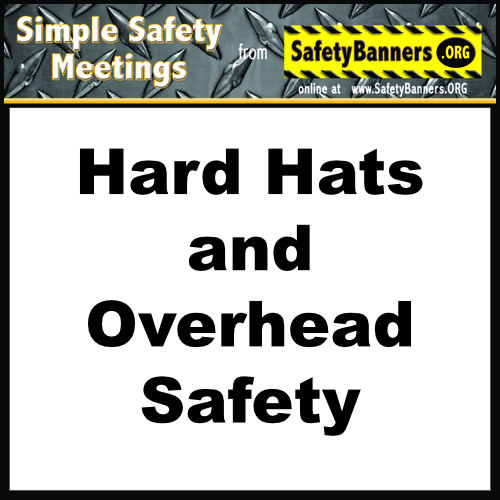 -
- 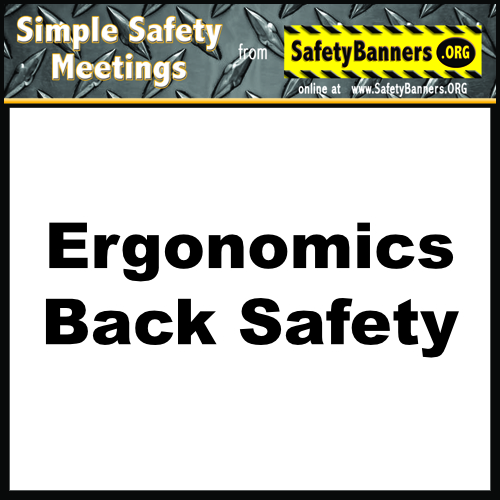 -
- 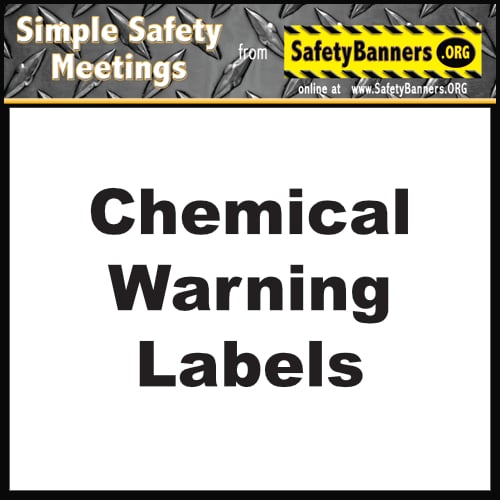 -
- 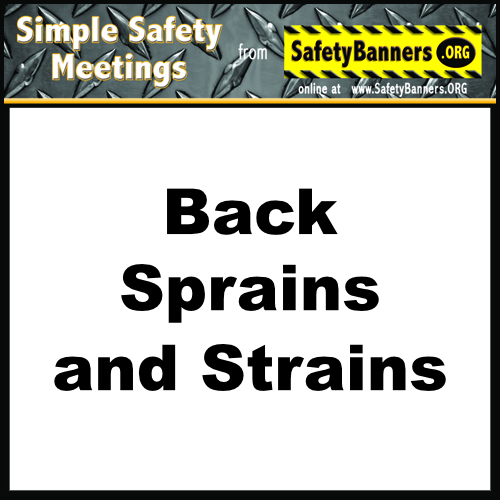 -
- 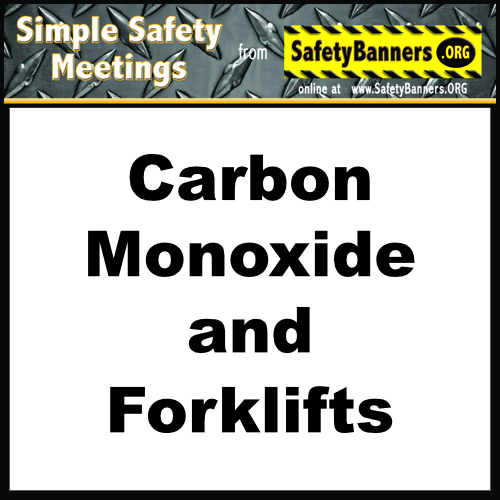 -
-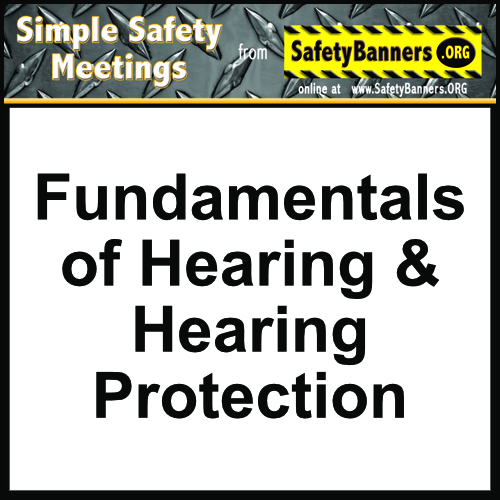 -
- 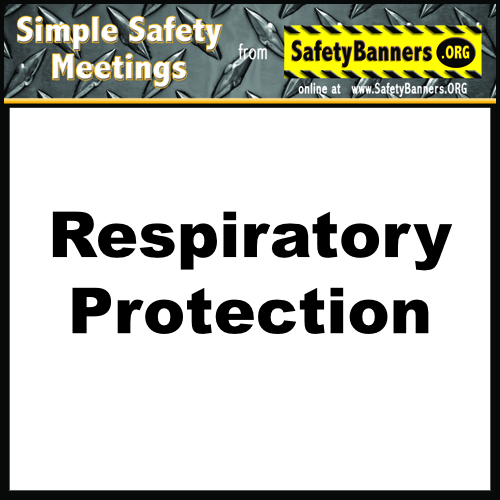 -
- 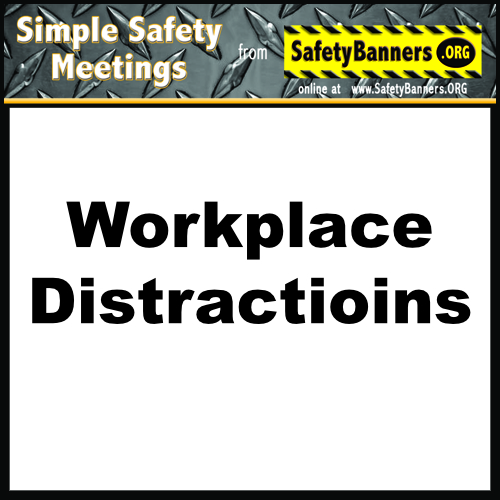 -
- 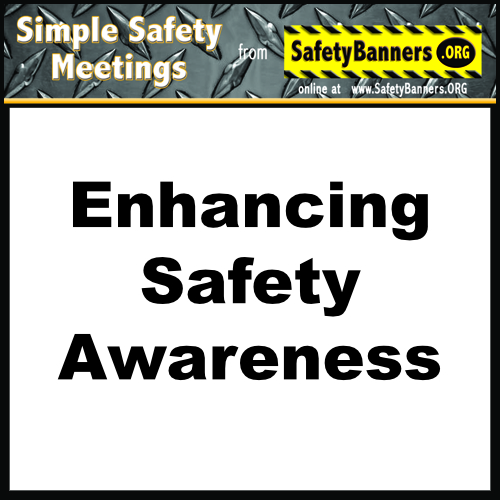 -
- 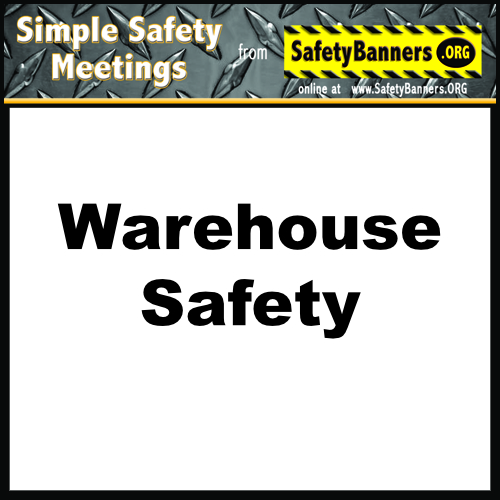 -
- 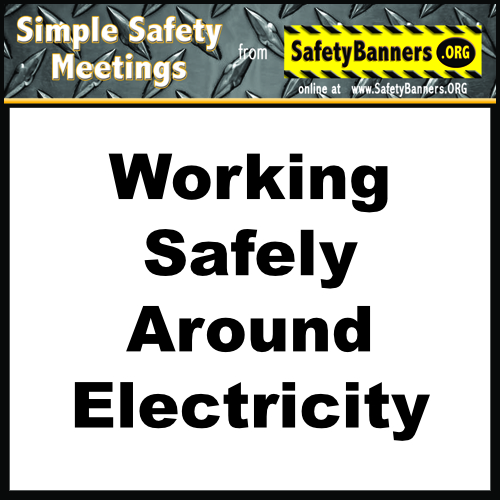 -
- 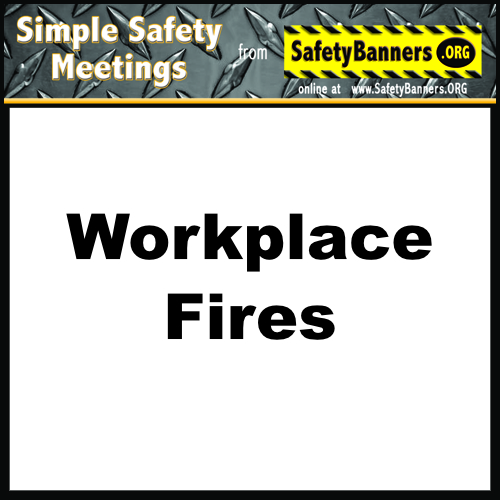 -
- 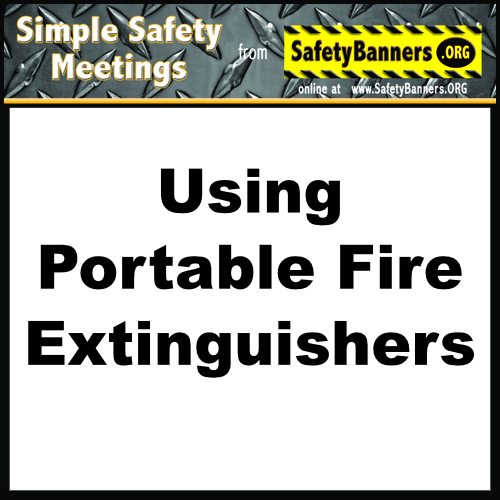 -
- 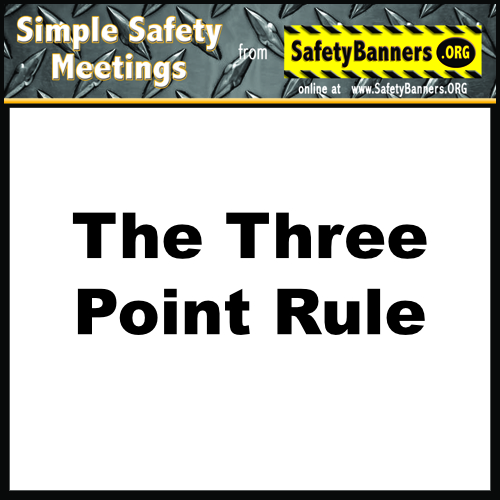 -
-  -
- 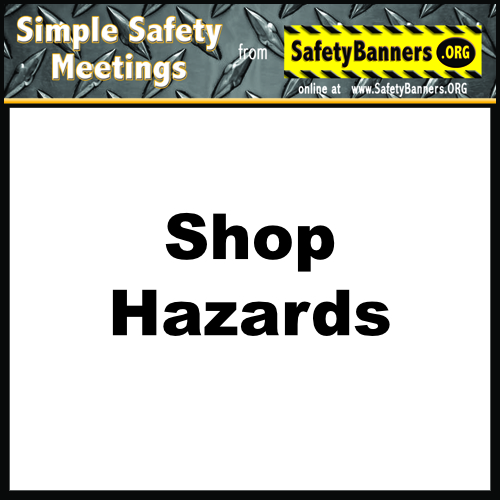 -
-  -
-
